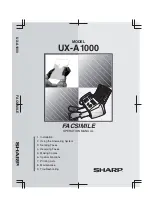
59
Problem
Skipped stitches
Seam puckering
Slipping fabric
The cloth is not
feeding smoothly.
Type of Sewing
All
All
All
All
All
All
Normal
Embroidery
Embroidery
All
All
All
All
Normal
Normal
Embroidery
All
Normal
Normal
Normal
Normal
Normal
Normal
Normal
Normal
Cause
q
The needle is incorrectly inserted.
w
The needle is bent or blunt.
e
The needle and/or threads are not suitable for
the work being sewn.
r
A blue-tipped needle is not being used for
sewing stretch, very fine fabrics and synthetics.
t
The needle thread is not threaded properly.
y
The wrong needle is used.
u
The presser foot pressure is not strong enough.
i
The embroidery hoop is not set properly.
o
The fabric is not tightly pulled on the
embroidery hoop.
!0
Interfacing is not being used with stretch or fine
fabrics.
q
The needle thread tension is too tight.
w
The needle thread or the bobbin thread is not
threaded correctly.
e
The needle is too heavy for the fabric being
sewn.
r
The stitch length is too long for the fabric.
t
The presser foot pressure is not correctly
adjusted.
* When sewing extremely lightweight materials,
place stabilizer underneath the fabric.
y
The fabric is not tightly pulled on the
embroidery hoop.
u
Interfacing is not being used with stretch or fine
fabrics.
q
The presser foot pressure is not correctly
adjusted.
w
The correct presser foot is not being used.
q
The feed dog is packed with lint.
w
The presser foot pressure is too weak.
e
The stitches are too fine.
r
The fabric is not fed when sewing is starting.
t
The feed dog is lowered.
y
The correct presser foot is not used.
Reference
See page 39.
See page 39.
See page 13.
See page 13.
See page 10.
Change the
needle.
See page 12.
See pages 43, 44.
See page 43.
See pages 25,41,43.
See page 14.
See pages 8-11.
See page 13.
Make the stitches
denser.
See page 12.
See page 43.
See pages 25, 43.
See page 12.
Use the correct
Presser foot
See pages 56, 57.
See page 12.
Make the stitches
coarser.
See page 19.
See page 42.
Use the correct
Presser foot
Summary of Contents for Harmony 8100
Page 1: ......
Page 63: ...834 853 005 E Printed in Japan...



































